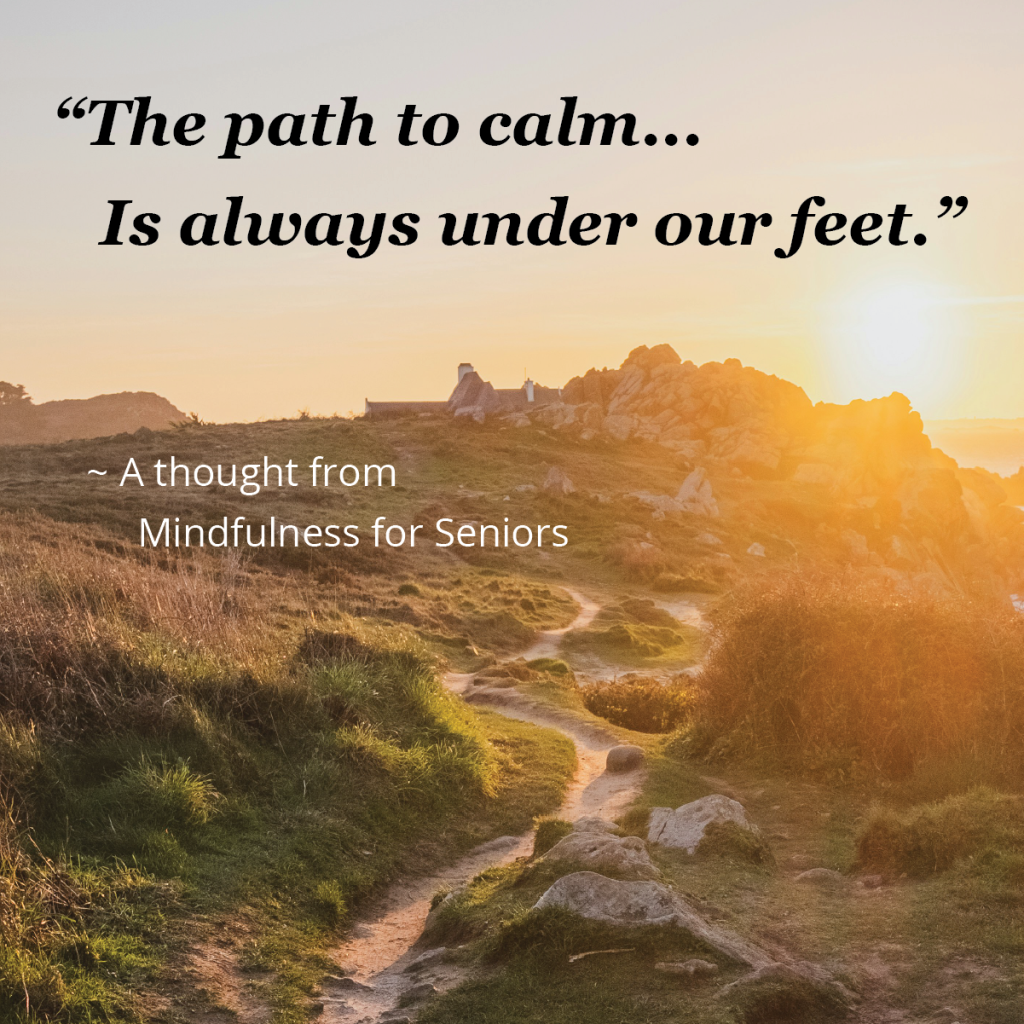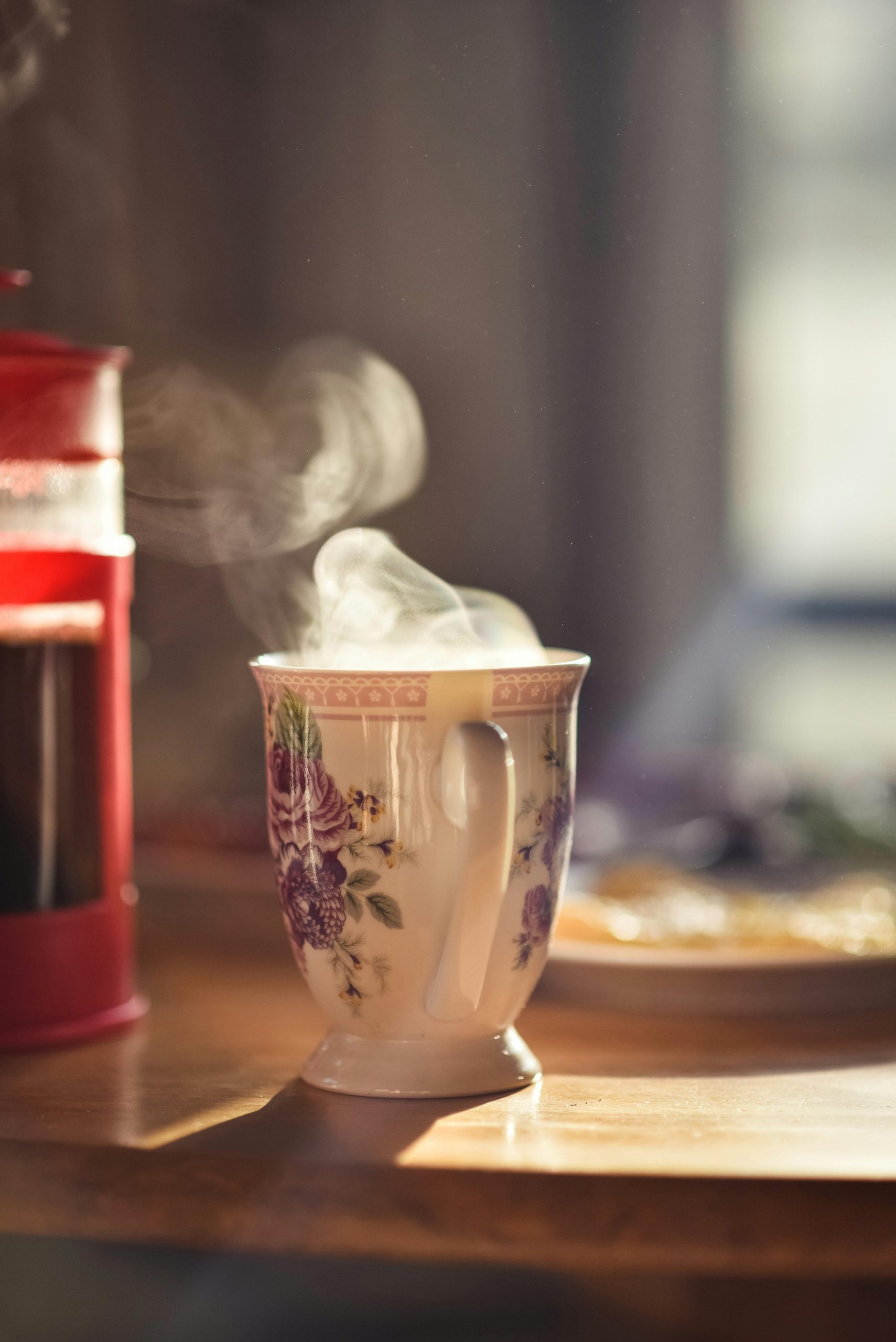Why Simple Mindfulness for Seniors Works
Our Later Years, Brighter and Calmer
I’m in my seventh decade of an amazing life, and like many of you, I’ve noticed things shifting. Our bodies change, our social connections may evolve, and our sense of purpose can sometimes need a gentle realignment. This is a normal part of the journey, but it can also feel overwhelming and anxiety-producing at times. That’s why I want to share a simple, practical approach to mindfulness that has helped me, and might be able to help you too.
Mindfulness isn’t some complicated or “out there” thing you have to force yourself to do. It’s simply meeting life as it is, living our lives fully, but without getting carried away by our worries and upsets. It’s about shifting to a more relaxed approach where we can engage with the world with a bit more ease, calm, and grace.
Mindfulness has always been a wisdom-driven tool, but over the last several decades, it has evolved into something much more flexible and relevant to modern life. At Mindfulness for Seniors, I’ve taken that flexible approach one step further and created a tailored and targeted Simple Mindfulness for Seniors approach.
- Meditation is not required*. (*Senior Mindfulness Research backed. This is just one of many ways our approach builds on and also differs from traditional mindfulness, all with a focus on ease, flexibility of approach, and relevance for seniors).

So, what’s in this toolkit for you? Let’s explore.
A Proven, Research-Backed Way to Feel Better, Mentally and Emotionally
You might be surprised by the benefits that even a little bit of simple and gentle mindfulness can bring to how you feel inside.
- Changing Our Relationship to Stress and Worry: The biggest gift of mindfulness is realizing that our inner voice of worry and anxiety doesn’t have to be in charge. Mindfulness gives us a simple way to pause and reset when life feels overwhelming. Many studies show that seniors often report feeling calmer and better able to manage daily stresses and anxieties.
- The Potential for a Brighter and Lighter Mood: By inviting more appreciation into our lives and expanding our experience of the many things to be grateful for, mindfulness can help lift our mood and alleviate feelings of isolation and long-term sadness. We can even find ourselves feeling more at ease and joyful, even when life gets messy.
- Improved Relationships and Deeper Connections: Our relationships are important, and for some, they mean everything. When we bring a mindful approach to our interactions, we might find ourselves experiencing greater empathy, improving communication, and feeling more satisfied in all our connections, especially with family and friends.
Keeping Our Minds Sharp and Engaged
Maintaining mental clarity is a top priority for many of us seniors. Mindfulness is a wonderful tool for keeping your mind nimble and active.
- Sharper Focus and Clarity: Regular, simple mindfulness engagement, even using an as-needed or on-demand strategy, can be like a gentle workout for your brain. It helps improve our memory, concentration, and ability to think clearly and allows us to clear out many of the mental cobwebs and habitual thinking patterns that may no longer serve us.
- A Lifelong Skill for Brain Health That Can Even Be Fun: Research suggests that nurturing your mind with mindfulness may even help maintain cognitive function as we age. But it doesn’t stop there. Many new researchers and even mindfulness teachers now fully proclaim the benefits of hobbies, crossword puzzles, Sudoku, playing Bridge, and more… All as extensions of a “mindfulness strategy” for supporting brain health. And who says Mindfulness needs to be “serious” without any fun? Certainly not me!
Practical Benefits for Your Body and Safety
Mindfulness isn’t just for your mind; it’s for our whole life. It can bring very real, tangible benefits to our physical well-being too! And yes, senior health research has found that mindfulness can help here too!
- Sleep Better, Feel Rested: If sleep feels elusive, mindfulness can be a game-changer. It helps calm our bodies and minds, leading to more restful nights and combating insomnia. Many seniors report falling asleep faster and sleeping more soundly. And even if the mind kicks back in or return to sleep doesn’t come easily, a well-grounded familiarity with simple breathing and body scan techniques can help us to deeply and fully relax, which of course, also helps us to sleep.
- Manage Discomfort and Find Your Balance: This is a big one. Mindfulness has been shown to help with chronic pain by changing our relationship with it. While the pain and discomfort will often still be present, mindful techniques can shift our relationship to pain, reduce our pain reactivity, and even help other pain interventions be more successful. And for movement, mindfulness techniques, especially those with gentle mindful movements or simply mindful walking (even with assistive devices), can improve balance, improve our awareness of our environments, and reduce the risk of falls. This is a major benefit for maintaining our independence with confidence and poise.
Your Personal Toolkit: Easy Ways to Start
The beauty of the M4S approach is that there’s no right or wrong way to do it, and formal meditation is absolutely not required. All you need is a genuine willingness to try. Here are some of our favorite, and actually, most effective and simple things you can try (You can also download our free and newly expanded “A Taste of Mindfulness for Seniors“… And no email required!).
- Just One Breath: Feeling rattled? Take one long, conscious breath. That’s a mindful moment. That can be enough! (And if it isn’t, just do it again until you can reclaim your calm).
- Mindful Walking: As you walk to the mailbox or around the house, simply notice the feeling of your feet on the ground, the shifting of your balance, the sounds around you, or your feet coming in contact with the ground.
- Savoring the Small Things: You can turn any ordinary activity into a mindful one. Really taste that cup of coffee (especially that first sip!). Fully listen to a song you love. Enjoy the warmth of the sun on your skin, or smell that fragrant rose or other plant when you walk past.
- Mindful Music: Play some of your favorite calming music, truly focusing on the melodies and the feelings they bring you.
- Gratitude Journaling: Write down things you’re grateful for each day, both minor and the big things too. This simple practice can gently shift your focus to positivity. (Sometimes, though maybe not easy, we can also learn to be grateful for life’s challenges. Why? Because they are the fire that forges the tools to build our resilience).
Mindfulness is a wonderful, easy, flexible, and life-centric tool that you can shape to your needs and preferences… not the other way around. By embracing even these small “micro-mindfulness” moments and mini-strategies, you’re paving a path toward a life with greater ease, joy, contentment, and a richer sense of well-being. And it’s never too late to start!

